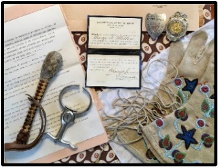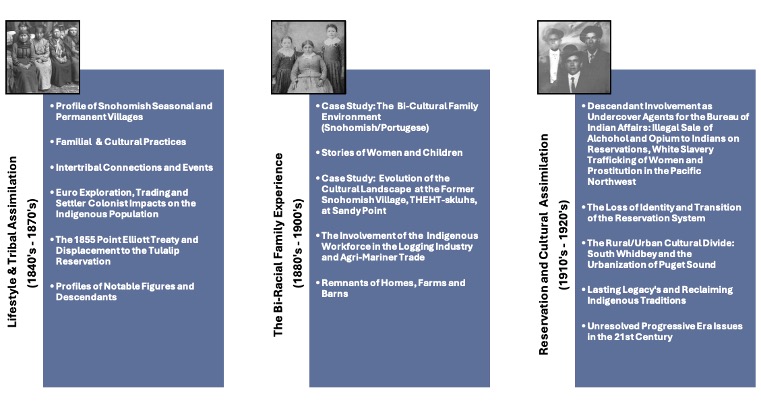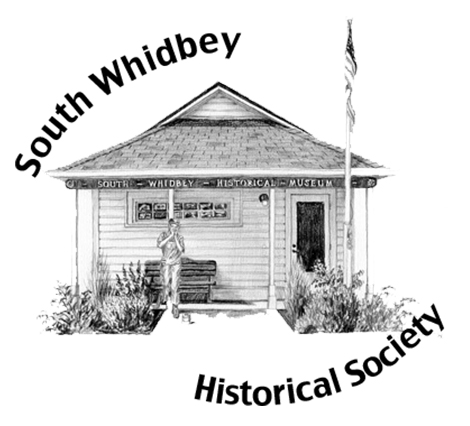A Tangled Web of History Project
A collection of artifacts and records once kept in the home of an early South Whidbey family presents a remarkable outline of an unknown chapter of South Whidbey and Pacific Northwest History.
History can take the form of a broad narrative filled with great personalities and major events. Each generation adds its own chapters which fade over time. The Miller-Brown Collection unearths stories and experiences behind the broader historical context. Documenting historical events that connect South Whidbey Island to the Pacific Northwest and Indigenous History, the parallels to the social conditions of today are remarkable. The project relies on grants, donors, and volunteers. 
Working with Tribal Organizations, Island County stakeholders, and regional partners, the project is developing new historical narratives driven by research findings based on an academic study of records, artifacts, and field surveys. According to Board President Bill Haroldson, “This is the largest research project we have undertaken in the last 20 years. Project Historian Kyle Walker is revealing a new historical narrative of the Coast Salish Snohomish Tribe on South Whidbey and correcting inaccuracies and contradictions in the colonist settler historic record.”
Research is expanding “off island” to tribal, private, and public archival centers previously closed during the pandemic to augment findings and capture new history. From Bellingham to Portland and beyond, collections have been identified to efficiently focus research. Representatives from academia, museum, and historic organizations, government agencies, and tribal organizations are helping to guide the research. Your donation will offset the costs of travel, materials, and supplies.
The Tangled Web of History project is untangling many of the threads that have snarled the history of South Whidbey. Its individual strands are meticulously studied to reweave them into a narrative that is accessible to all. Study topics have been organized to effectively guide research focused on the decades between the 1850’s to the 1920’s.
We welcome your engagement and investment on this journey of remarkable courage, heartbreaking loss, and longing for the healing of the moral condition.

